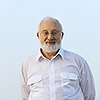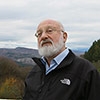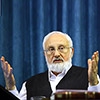How Should We Respond To Criticism Of Kabbalah?
 Question: How should we respond to the fierce criticism of Kabbalah coming from family during the quarantine period?
Question: How should we respond to the fierce criticism of Kabbalah coming from family during the quarantine period?
Answer: You should explain to your family that Kabbalah talks about how to create good relationships between people, how to raise children correctly, how to make sure that when you drive you are careful not to hit others or crash into the car in front of you, and to give way to others. A person should understand that society is integral and how beneficial it is for it to be connected through good relations.
Kabbalah explains the correct social structure in which everything works smoothly as one single organism. Creating such an organism is completely contrary to our egoism, which is decidedly opposed to it. This is the state we are in, but we must still find a way to correct ourselves. Kabbalah talks about how this can be done.
There is a positive force in nature—altruism. We must attract it to help us balance the negative force—the egoism that initially exists in us. Then we will live in an open, friendly, kind society. Otherwise, we will bring ourselves to mutual destruction.
Tell this to your family. It is unlikely they will be able to object.
Kabbalah is the science of how to use the positive force of nature, the quality of bestowal, the quality of connection, against our egoistic quality of separation and distance.
This is the science of balancing the two opposing forces in human society: positive and negative. By balancing them out, we transform the family, society, and the environment into something good and positive.
[266697]
From KabTV’s “Fundamentals of Kabbalah,” 5/3/20
Related Material:
Why Are We Criticized?
Kabbalah Is Not A Sect
The Wisdom Of Kabbalah Is Not A Religion











